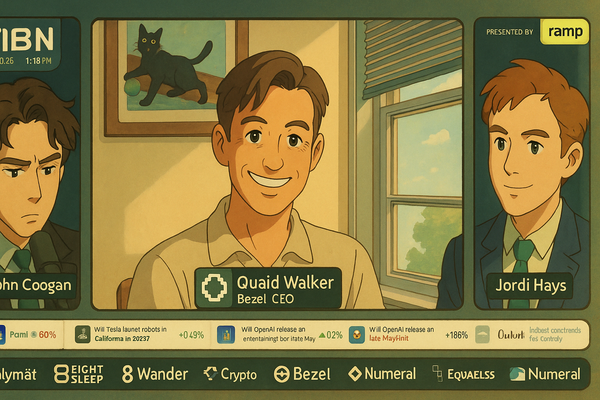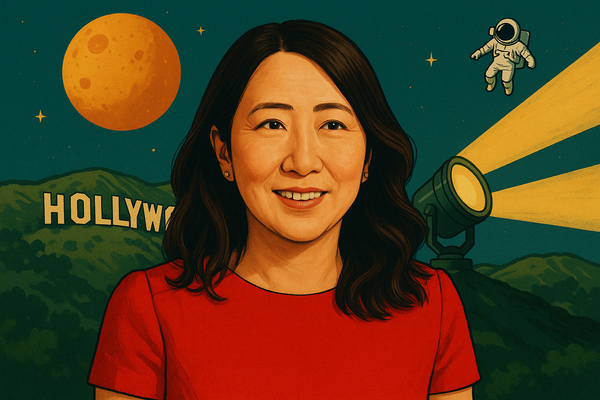Google zero
Depth over breadth

The language of the internet has long made clear how adversarial approaches have been baked into its commercialization. People quickly became users to be targeted with “engaging experiences” that sounded like weapons systems. The focus on uniques meant that breadth beat depth. Publishers made rational choices based on what was rewarded in the marketplace.
That game has ended. The new generative AI search makes that clear. The last week has been filled with teeth gnashing, as publishers confront what The Verge’s Nilay Patel provocatively calls Google Zero, as in Google stops sending traffic to publishers. (This is not new: zero-click searches are estimated to be as much as a quarter or more than half, depending on the tea leaf reader.)
Publishers are not entitled to traffic to their vacuum review pages ginned up by an SEO chop shop. Google is hardly without its sins, but it is focusing on consumers in overhauling search to clear out the direct-marketing detritus. This is akin to a regulator cracking down on a malfunctioning market.
Publishers wince when they hear “Let Google do the Googling for you,” but regular people will find this more compelling than wading through an affiliate link smorgasbord.
As Google CEO Sundar Pichai told Patel, “users are voting with their feet.” Despite the many examples of inaccurate AI-produced responses, Google is seeing data that shows satisfaction with zero-click approach. The brake on Google keeping all the traffic has long been that it has skin in the game by controlling the digital ad ecosystem. It’s much like how the dollar’s supremacy meant that the U.S. would put aside its isolationist tendencies and would keep shipping lanes open because there’s a lot of money at stake. Ironically, government intervention to force Google to decouple its ad system would give Google less of a stake in the open web.
On this week’s episode of The Rebooting Show, I spoke to BlueConic CEO Cory Munchbach about how publishers adapt to these changes. BlueConic’s consumer data platform gives publishers a deeper view of their audience. In fact, Cory sees the need to shift from even talking about audience, users and “uniques” to settle on regular “consumers.” That means laying the data foundation in order to understand these people better and use that information to tailor content and experiences to needs.
"I'd rather have a deeper relationship with a smaller audience than a thinner relationship with a larger audience,” she said.
BlueConic was one of the presenting sponsors of The Rebooting’s New Growth Agenda. A key theme was this shift from serving the traffic gods to focusing on consumers. This is a difficult transition. Most publishers are really B2B businesses in the sense that their customers are other companies, not the people who visit their sites and apps or even attend their events.
This is an internal challenge that “requires alignment from top to bottom and bottom back up." From the top, it means setting a clear North Star goal rather than trying to run many different businesses with many different objectives at the same time. We’ve all seen that confusion present itself with what I call the Battle of the Overlays, as different departments elbow each other on a single page with pop-ups to sign up for a newsletter, take out a membership, allow desktop notifications, accept cookies, and please turn off that ad blocker.
The current time of tumult, with declarations of Game Over, will normalize. As Pichai noticed, times of disruptions tend to have those who don’t benefit but more that do. Publishing as an industry isn’t going away. These businesses will morph, some will become content suppliers to centralized systems, others will consolidate, some will manage dignified to no not-so-dignified decline and many lightweight models will emerge.
The looming challenge for legacy players in this transition: An inability to make the needed investments to make the needed changes. The economics of these businesses are different than they were just a few years ago. They built up relatively expensive infrastructures that while not exactly obsolete have greatly depreciated. Nobody is bragging about their custom CMS with a name from Norse mythology. And now they will need a new investment cycle focused on understanding and applying audience data with fewer means.
"Transformation is expensive and takes a long time and it is just resource heavy,” Cory said, adding, “if you're already debt ridden, taking on a ton more money to be able to make some of these changes is just not available to you.”
Check out the full conversation with Cory on Apple, Spotify or other podcast platforms. Thanks to BlueConic for being a supporter of The Rebooting. Also, I finally freed myself from the atrocity that Spotify visited on Anchor – we have larger issues in the world, but I don’t want this to go unnoticed – so my conversation with Big IP’s Scott Porch on audio in the age of AI is finally posted.
Thanks for reading. Send me your feedback by hitting reply or emailing me at bmorrissey@therebooting.com.



